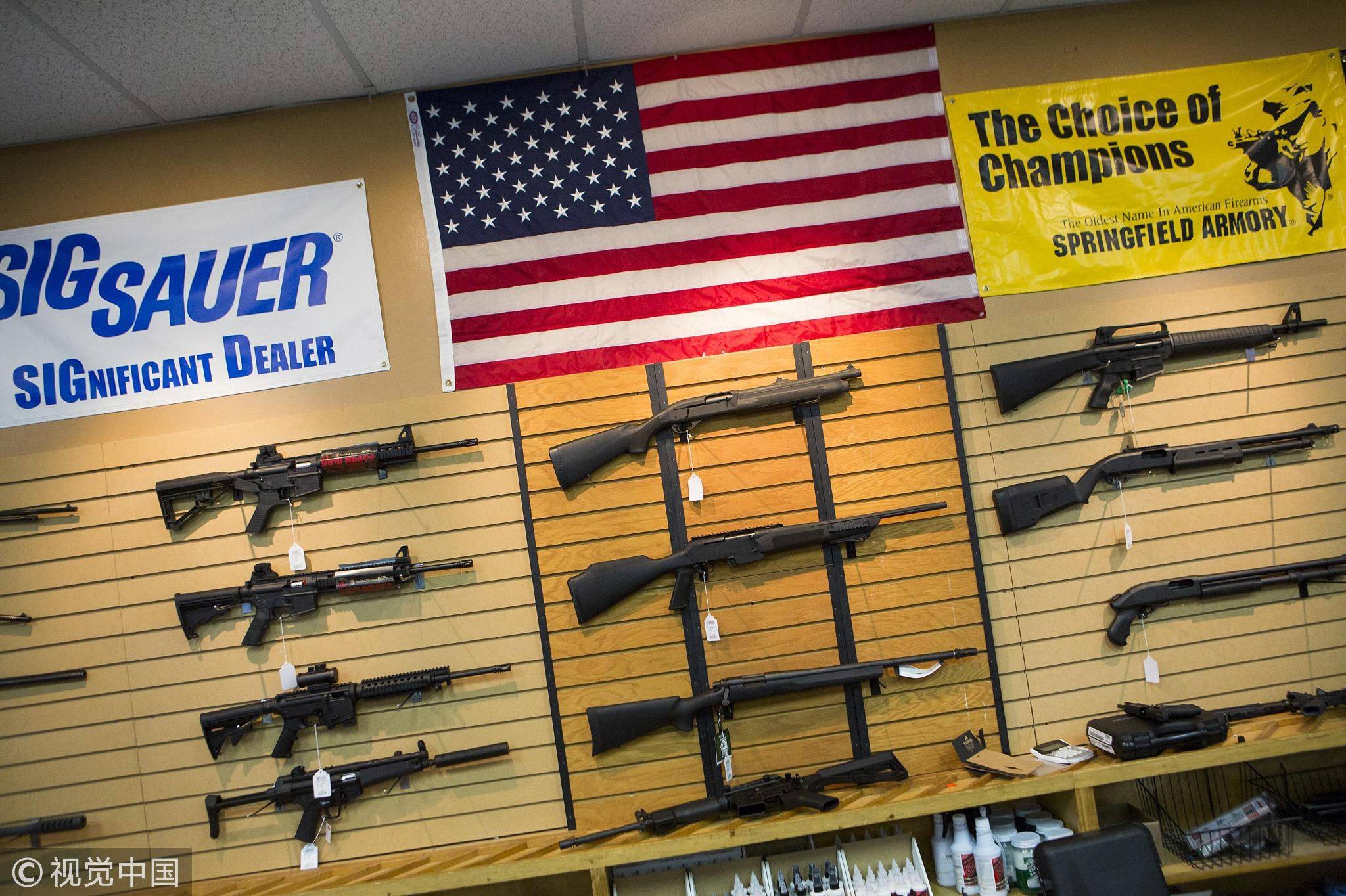02:25
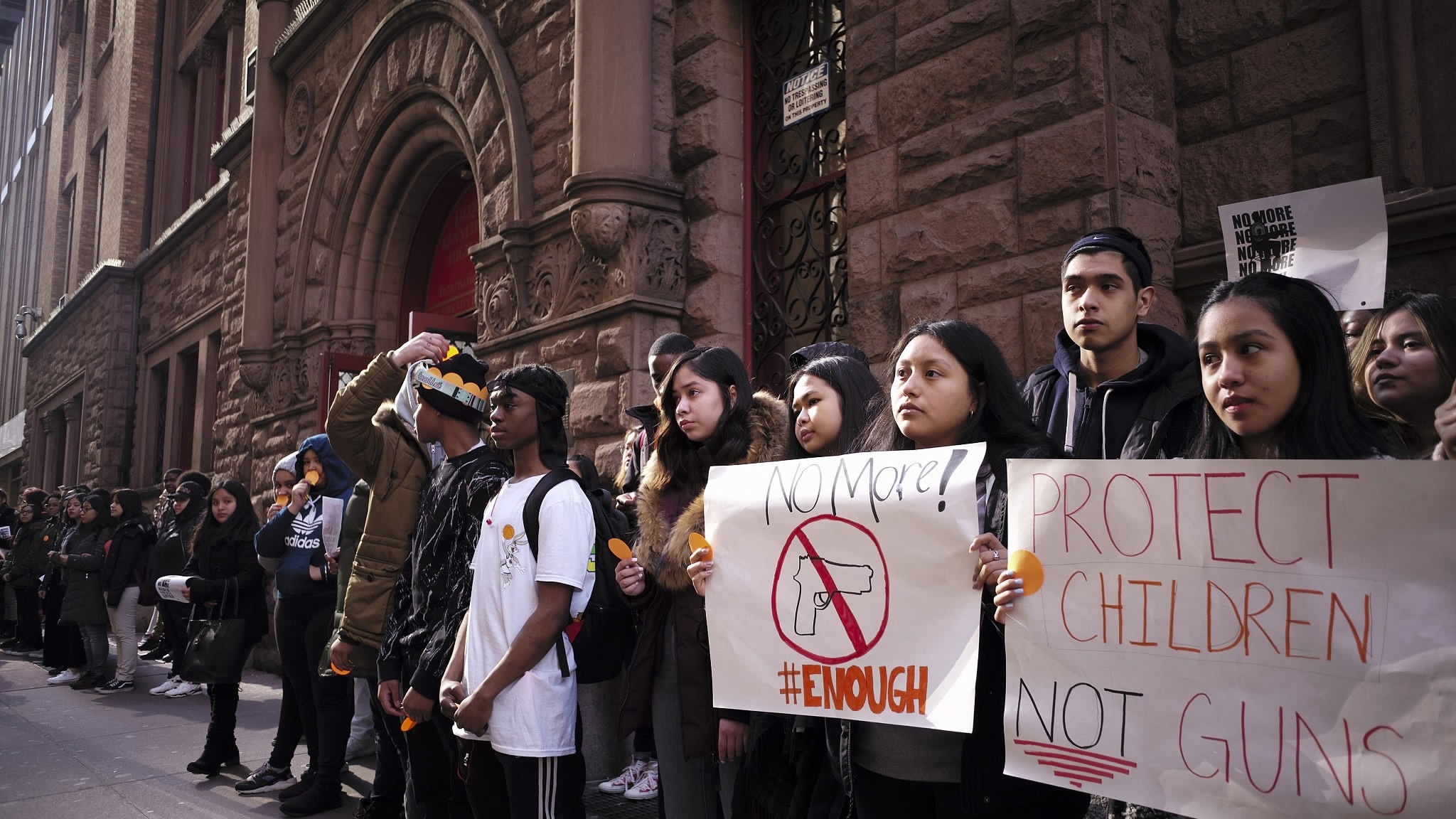
61,548. That was the number of gun-related incidents in the US in 2017.
More than 15,000 people were killed, and another 31,000 were injured.
About 4,000 minors were killed or injured by guns.
A mass shooting occurred nine out of every 10 days.
Why is gun control so difficult in the US?
First, the “right to bear arms” was enshrined in the second amendment of the US constitution more than 200 years ago. This is the starting point for all arguments about gun control. The second amendment is interpreted differently by different experts, but as it stands, it is the ultimate defense against implementing strict gun laws.
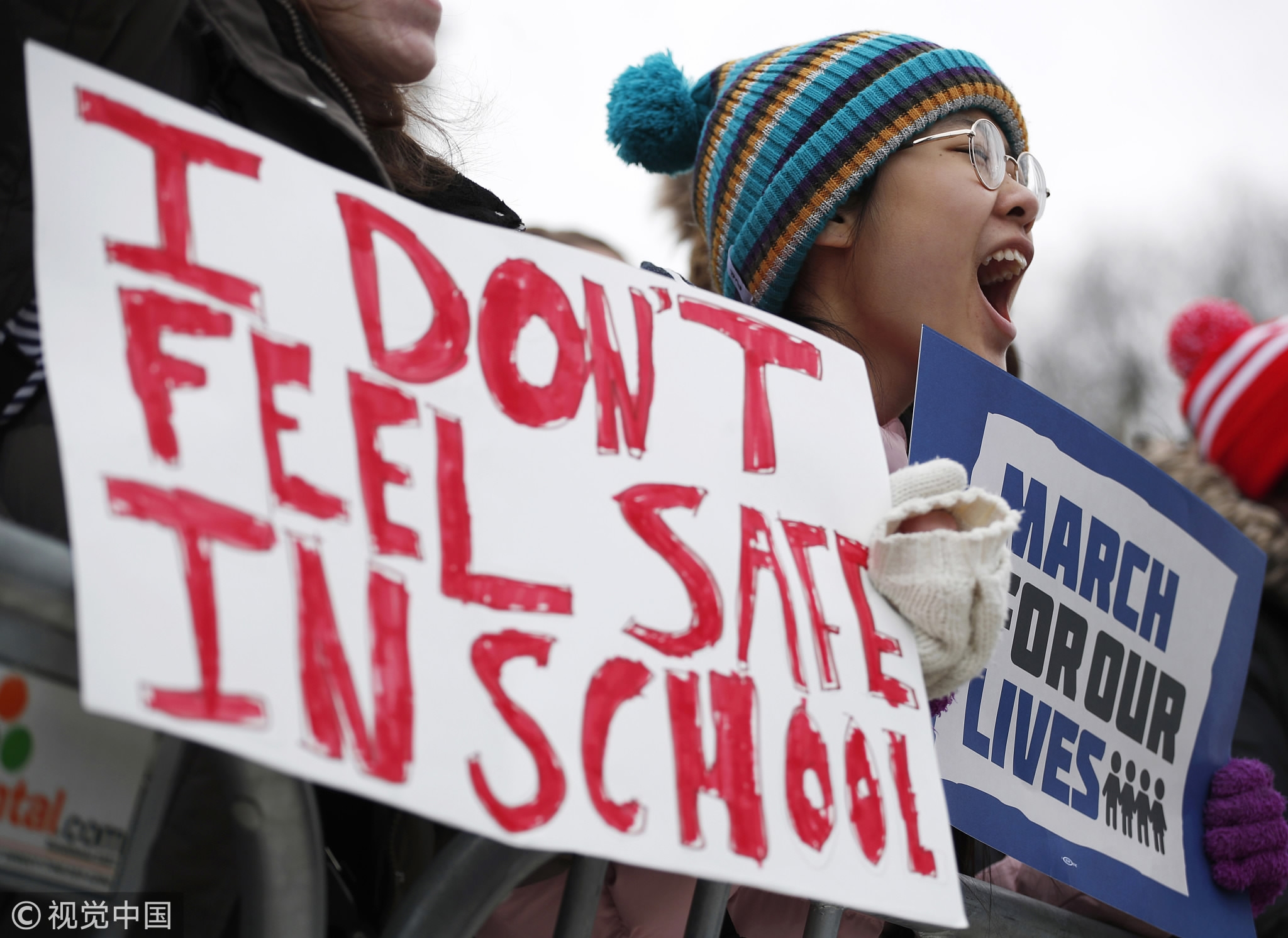
People rally on the street at the "March for Our Lives" demonstration, March 24, 2018, in Washington, DC, US. /VCG Photo
People rally on the street at the "March for Our Lives" demonstration, March 24, 2018, in Washington, DC, US. /VCG Photo
Second, availability. US citizens possess almost half of all civilian-owned guns in the world though they only constitute five percent of the global population. Every 100 US citizens own 89 to 100 guns on average.
The amazingly high possession rate of guns relates closely to a variety of approaches for gun sales. There were about 65,000 gun shops in the US nationwide in 2017-roughly the same as the number of pharmacies. Guns are also sold legally second hand, in pawn shops, at gun shows and online, as well as illegally.
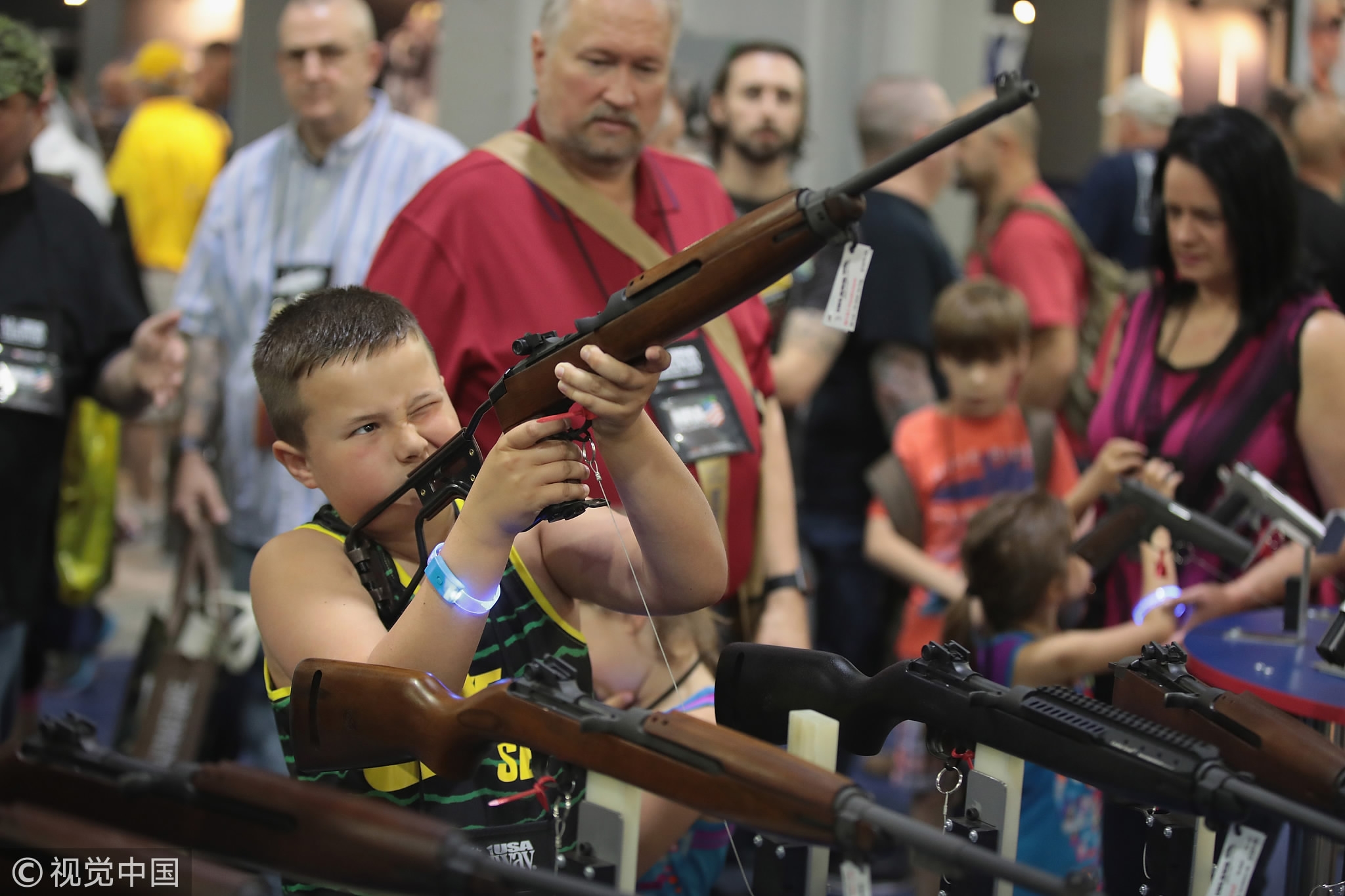
A boy visits exhibitor booths at the 146th NRA Annual Meetings & Exhibits, April 29, 2017, in Georgia, US. /VCG Photo
A boy visits exhibitor booths at the 146th NRA Annual Meetings & Exhibits, April 29, 2017, in Georgia, US. /VCG Photo
Third, the regulation of firearm sales varies wildly and there are many loopholes.
With so many guns on America’s streets, you might think tracking ownership and restricting access to those who can get hold of them would be a priority. But background checks, age limits, eligibility, and the number of guns available are different in different places.
Age is the only unified restriction regulated by the federal law, according to which, citizens over 18 years old can buy long guns, including assault rifles, and citizens over 21 years old can legally purchase handguns. In other words, citizens in the US can register a firearm before buying a bottle of beer.
Regarding eligibility, 36 states don’t require a permit or registration for people to buy guns. But a permit is considered necessary before buying a car.
What’s more, most of the states also don’t have a legal limit on the maximum number of guns a person can own. Stephen Paddock-the gunman who killed 59 people and injured 489 others on the Las Vegas Strip-purchased 33 guns, most of them rifles, in just one year. He owned more than 40 firearms in total.
Besides, the US also has the following regulations:
· Citizens can sell/buy guns online, with the private seller free from the obligation of conducting a background check of the buyer;
· If the government doesn’t issue a non-criminal record within three days, sales can go ahead without it;
· Private selling of guns is legal. Gun selling can take place between neighbors, friends and relatives;
And those are only several of the many nominal restrictions over the gun control policies in the US.
It is no wonder that every time a mass shooting happens, people lament the incredible convenience available to a criminal for acquiring firearms in the country.
Why does nothing change? Why doesn’t the US implement comprehensive 'gun control'?
With thousands dying each year from gun-related violence and inconsistencies in regulation, the calls for effective gun control grow. But a vocal, well-funded group claims that guns are essential for protection from criminals – and an overbearing government – as well as a constitutional right.
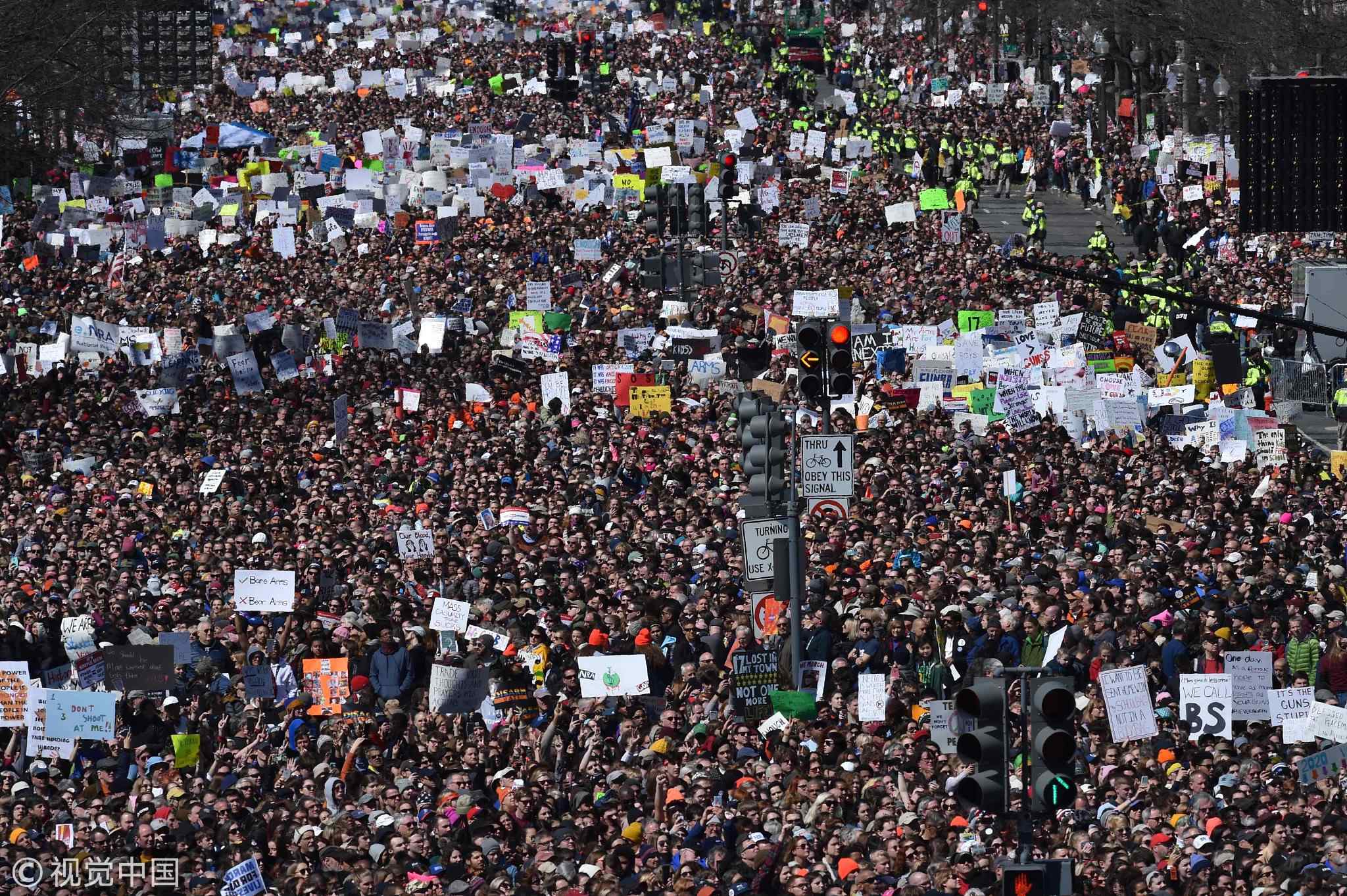
People rally on the street at the "March for Our Lives" demonstration in Washington, DC, March 24, 2018. /VCG Photo
People rally on the street at the "March for Our Lives" demonstration in Washington, DC, March 24, 2018. /VCG Photo
The National Rifle Association was founded in 1871 and initially was essentially a club for hunters and sportsmen. The gun control issue was marginal in US politics until the 1970s, when the NRA first developed a lobbying arm.
An absolutist approach followed – oppose all attempts at gun control.
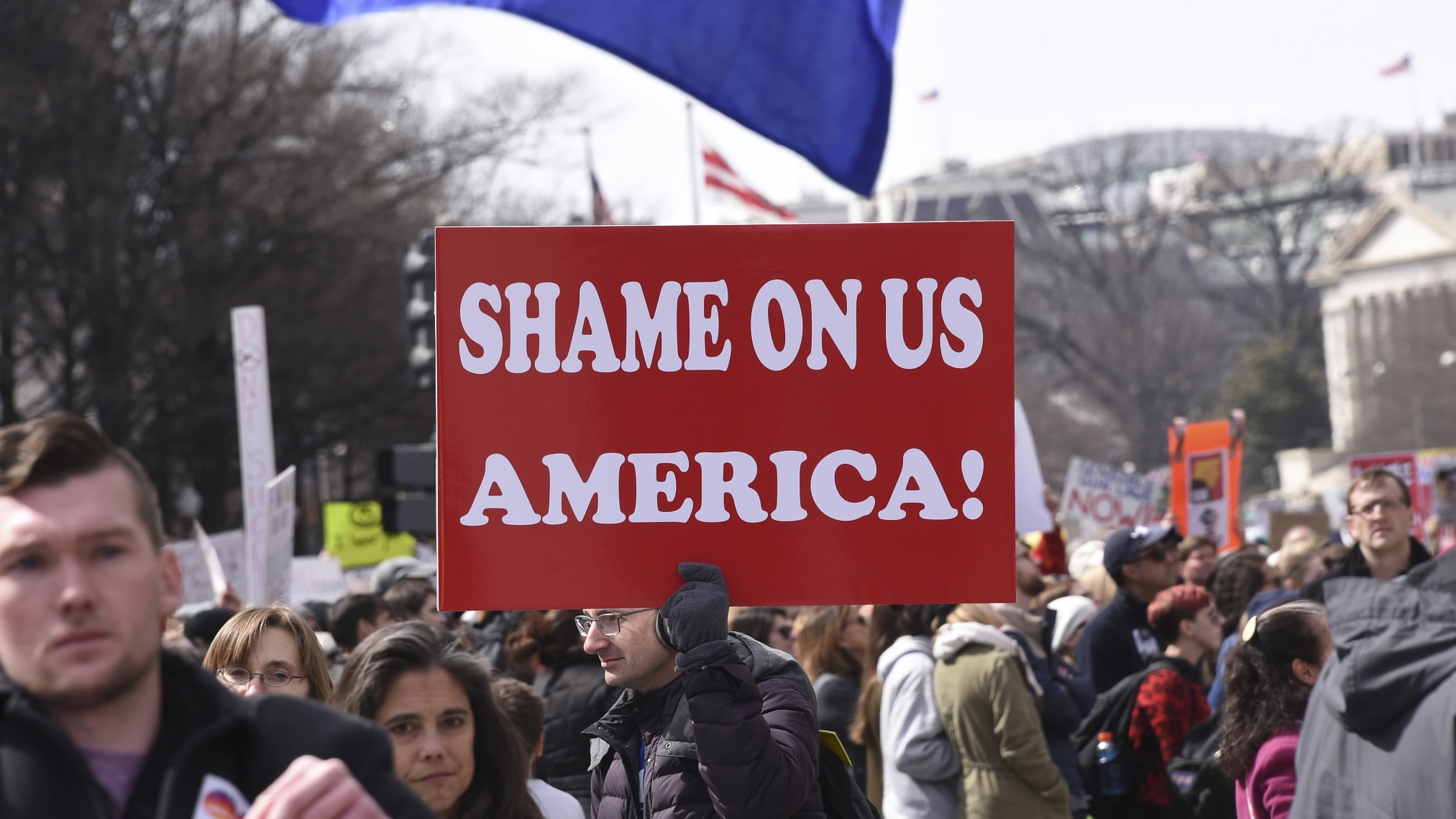
Part of the "March for Our Lives" demonstration on March 24, 2018, in Washington, DC. /VCG Photo
Part of the "March for Our Lives" demonstration on March 24, 2018, in Washington, DC. /VCG Photo
Today the NRA has a membership of five million Americans and very deep pockets-it is a powerful force in Washington, funding politicians and lobbying for and against legislation. While many Americans have a nuanced approach to gun laws, the NRA just says no to proposed controls.
According to the nonpartisan Centre for Responsive Politics, during the 2016 general election, the NRA spent a record 54 million US dollars on 86 Republican candidates – often producing ads in support of the Republican and criticizing their Democratic opponent.
Among the 535 current members of Congress, 307 have received either direct campaign contributions from the NRA and its affiliates or benefited from independent NRA spending on advertising supporting their campaigns. It also strongly supported President Donald Trump, who was the biggest beneficiary of NRA money in 2016.
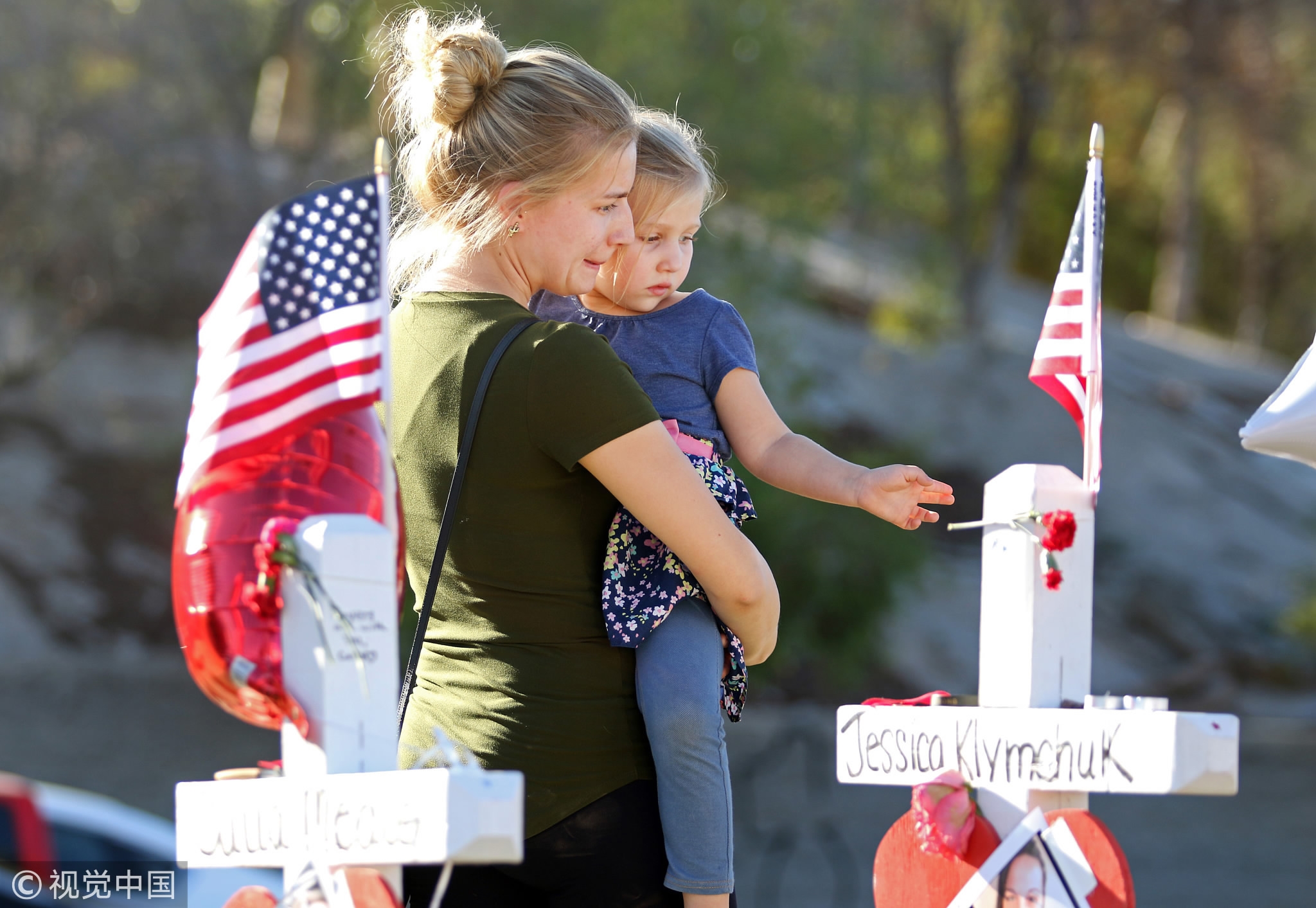
Oct. 6, 2017: People pay their respects to the victims of the Route 91 Harvest music festival mass shooting at a memorial in Las Vegas, Nevada, US. /VCG Photo
Oct. 6, 2017: People pay their respects to the victims of the Route 91 Harvest music festival mass shooting at a memorial in Las Vegas, Nevada, US. /VCG Photo
A huge benefit chain between politicians and the NRA has developed – putting a roadblock in front of gun control efforts, despite the growing death toll. The opinion polls of recent years show Americans’ willingness to have a comprehensive federal gun control law reached a peak in 2018, with millions of people “marching for their lives,” yet halted by the White House just because of this benefit chain.
Democratic country?
When innocent young lives are lost,
Washington, DC can only offer thoughts and prayers,
and nothing more.




